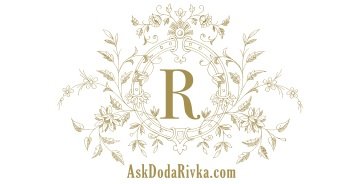Mrs. Maisel, Marvelous?
So, I caved and watched the acclaimed series. That might not sound like much, unless you know that the last movie I sat through was Forrest Gump—before I became frum. I didn’t grow up in America, where entertainment is practically a birthright. I had to be coaxed, cajoled, and compelled to spend a “gratuitous hour” on this national obsession. But after hearing about its “Jewish” content—and with 19 uninterrupted hours aboard the world’s longest flight from New York to Singapore—I gave in.
While the show is artfully executed, its incessant verbosity left me with brain clutter. Still, I couldn’t look away from the foul-mouthed manager—a reminder that I, too, was once fluent in the language of sailors before discovering the privilege of speech. The power that makes us co-creators with the Master of the Universe, who spoke the world into being.
What unsettled me most, however, was its depiction of Jewish lives stripped of Jewish values. I called a trusted friend: “Do we really need another distorted portrayal of our people and sacred traditions? Haven’t our children already paid the price of misinformation, exaggeration, and assimilation?”
She sighed. “I watched it too—finger on the fast-forward button.” We commiserated over the time forever lost.
From synagogue scandals to the desecration of G-d’s name and rituals, the show reflected its creators’ disdain for holiness. Yes, stereotypes often spring from partial truths—and dysfunction sells—but in an era of rampant antisemitism, is this caricature not defamation, simply because it hides behind comedy?
“Relax,” some might say, “it’s just a show.”
But how can we relax when Jewish lives, synagogues, and students are under attack—when the memory of the Holocaust is still raw? Comedy is a powerful teacher, and as the show’s patriarch warns his daughter, “If you’re going to have a voice, be careful what that voice says.” Ironically, the show itself missed that point.
Hollywood has done a number on our collective psyche. It’s upon us to restore our children’s pride, to raise them above these hollow portrayals. We are not a people of neurosis or narcissism. We are a people of virtue, culture, and dignity—ambassadors of God’s morality and light unto the nations. The characters in Maisel are the antithesis of what we stand for.
When we place our faith in false idols—whether fame, fortune, or fiction—we commit a subtle form of idolatry. Idols always disappoint. A human being can descend below the animal level or ascend to the divine. What we worship determines our direction. Worship is immersive; we become what we revere.
It’s like the difference between sex and intimacy (see chapter 19 of my book Creating a Life that Matters). They appear similar, yet one connects while the other separates. Intimacy bonds souls; sex alone divides. Our ultimate goal is oneness—with each other and with our Creator—for oneness is holiness.
Soon, we’ll celebrate the birth of that oneness—Pesach. The birth of a nation, when God Himself reached down and freed us from slavery: not only from Egypt, but from our own ignorance, fears, and smallness. The Torah tells us there were no intermediaries—only G-d Himself. We were freed to live out our divine purpose, not someone else’s script.
Judaism is not a religion; it’s a relationship. Pesach seals that bond: “I am yours and you are Mine.” No wonder it remains our most celebrated holiday—no one forgets the day they were proposed to.
During the Seder, a cosmic window opens. We are invited to rise above mediocrity, to transform the mundane into the sacred. Every mitzvah reconnects us to the Divine and restores the spiritual spark in the physical world.
Today, we have technology that can either distract or elevate. Let’s choose elevation. Let’s fill our minds with Torah that refines, not entertainment that diminishes.
Be lifted. Be free.
Next year in Jerusalem.
